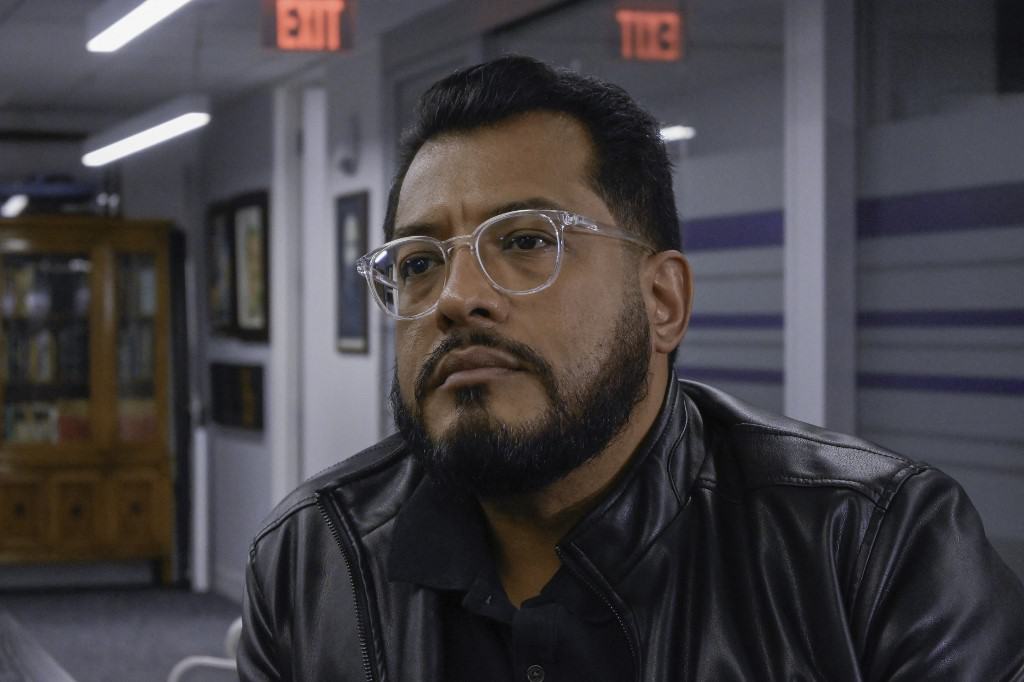In 2021 he was a candidate for the presidency of Nicaragua, but Daniel Ortega’s government imprisoned him for 611 days, stripped him of his nationality and deported him to the United States a year ago, along with more than 200 opponents.
Félix Maradiaga, 47, president of the Foundation for Freedom in Nicaragua, receives us in Miami days before the first anniversary of his exile, on February 9, 2023.
He recalls the nightmare of prison, unable to read, write or maintain any contact with the outside, and raises his voice against Ortega, re-elected in 2021 for the fourth consecutive time after repressing the entire opposition.
Tired after a day of meetings, he livens up when speaking of his struggle: “I live in Nicaragua. My body sleeps outside the country, sometimes in the United States, other times in Costa Rica or Europe, but my purpose and thoughts are set on the freedom of Nicaragua,” he says.
How has this year in exile been?
It has been a bittersweet experience. Having the opportunity to come to the United States and embrace my daughter Alejandra, see my wife, my mother, it’s like coming back to life.
But no person who loves their country can say that freedom is being exiled. Being imprisoned, then deported from Nicaragua, which is an inapplicable legal figure for a Nicaraguan, and stripped of nationality; it is a situation difficult to describe.
When you were 12 years old you came to the United States as an unaccompanied migrant, fleeing the civil war. How did you feel having to go into exile here so many years later?
It’s like living through a trauma twice, but it confirms that these tyrannies have no will to reform and that the path I chose from that childhood experience, the decision to dedicate the rest of my life to seeking the freedom of Nicaraguans, it was the right one. I didn’t want my daughter or other children to go through that experience of being exiled.
What impact has the long imprisonment had on you?
It is such an extreme process that it requires healing. I had worked with political prisoners and war veterans for a long time, but nothing had prepared me for that experience.
And if one does not pay attention to the emotional damage that torture, permanent humiliation, endless interrogations, isolation, beatings can cause, if one does not heal, there is not only damage at an emotional and personal level, but one is not in the best condition to lead either. One cannot lead from hatred, free, open and just societies cannot be built from that feeling.
How has the current situation in Nicaragua been reached?
I think the serious mistake was that certain key sectors, particularly the strongest business circles and some intellectuals, believed that Sandinismo could be given a second chance, when what existed was a project to entrench itself in power. Today we see the consequences.
Do you remain hopeful?
Without a high dose of optimism, this work of seeking justice for victims and accompanying new generations cannot be carried out. The greatest hope comes from those inside the country, and the priority of our political and human rights defense work are those people.
What does that support work consist of?
We carry out permanent work educating global public opinion. We start from the premise that Ortega is not a local problem, but rather that he is closely linked to international terrorist groups.
We also try to document human rights violations with agencies specialized in this area; we work with the Nicaraguan opposition, trying to contribute to the construction of a democratic alternative for the day after the dictatorship. We focus on the issue of international sanctions, and we want to accompany internal civil resistance.
What should happen for change in Nicaragua?
It’s very complicated. Nicaragua is a tropicalized North Korea. The possibility of a transition through elections has already passed because the people went out into the streets (in 2018) and those massive protests alerted Ortega that he could not play by those rules. So he decided to become more radical, dismantle all democratic institutions and move to a single-party model.
The hope is that there will be a confluence between the capacity for local resistance and a significant geopolitical change that weakens Ortega. There may be local resistance in Nicaragua, but as long as Ortega does not receive international pressure, those sparks will have little impact and vice versa.
What can the United States and the European Union do?
Don’t forget the cause of the Nicaraguan people and take the threat of China, Russia and Iran very seriously. To a large extent, the solidity of Ortega’s dictatorial project is linked to the advance of China in Latin America and that of these types of autocracies networks.
Stronger sanctions are needed, as well as concrete consequences for serious human rights violations. If there are no responses to the behavior of these authoritarian regimes, as in Nicaragua or Venezuela, there is an incentive for these tyrannies to advance their perverse agenda.






